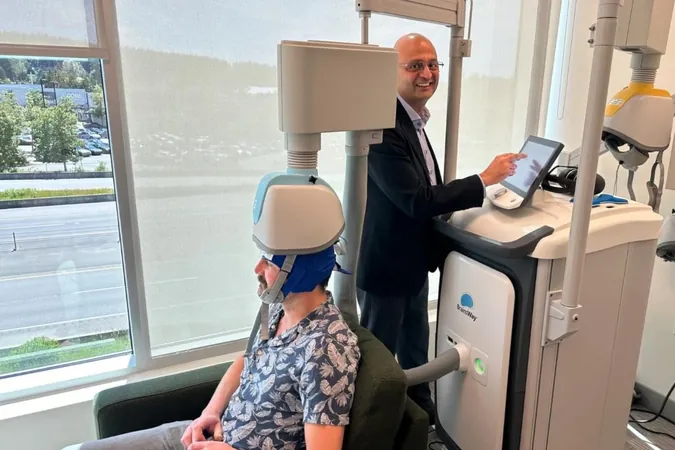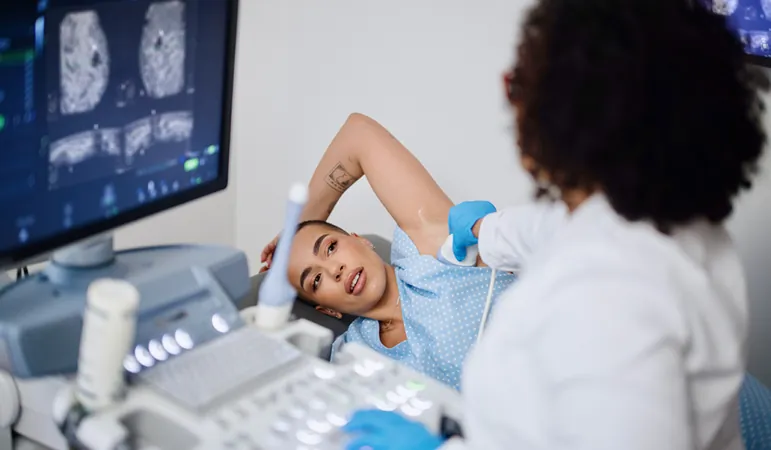
Unseen Victims: The Link Between Multiple Sclerosis and Domestic Violence
2024-11-25
Author: Sophie
Introduction
In a startling revelation during the COVID-19 lockdowns, Dr. Helen Ford, a top multiple sclerosis (MS) specialist from England, discovered a troubling increase in domestic violence and abuse (DVA) faced by her patients. The lockdowns, intended to keep people safe, inadvertently trapped many in harmful situations. For individuals like Anna, a pseudonym for one of Ford's patients, isolation exacerbated an already controlling relationship. Confined largely to her bedroom due to her MS, Anna's husband tightened his grip, confiscating her iPad to sever her communication with the outside world, particularly with her son.
Another patient faced a harrowing situation as her partner stripped away her mobility aid, leaving her vulnerable and isolated. Dr. Ford laments these situations, stressing the imperative for healthcare professionals to advocate for all patients with MS, particularly those ensnared in toxic relationships.
The Alarming Reality of Intimate Terrorism
It's not just Ford raising alarm bells; her colleagues, Dr. Nikos Evangelou and Dr. Klaus Schmierer, also highlighted the alarming magnitude of "intimate terrorism" against their patients. Such abuse encompasses not just physical violence but also emotional, financial, and healthcare manipulation. Abusers often wield patients' disabilities as weapons, subjecting them to humiliation by labeling them as "useless" and heightening their sense of dependency.
Inside the Mind of a Survivor
An anonymous survivor shared her harrowing journey, aiming to show that domestic abuse affects individuals beyond socioeconomic status. With a master’s degree and a career in a multinational company, she found herself marrying Jeff, who underwent a troubling transformation, leading to her MS diagnosis shortly after. As her condition progressed, so did the isolation and control exerted by Jeff. Although not physically violent, his psychological tactics—such as berating her and limiting her communication—were damaging, leading to a further decline in her health.
Having reached a breaking point after an ominous weekend, she bravely sought help, eventually escaping to a friend’s house. With support from her neuropsychologist, she began to reclaim her life and health, illustrating that even in seemingly hopeless situations, recovery is possible.
The Overlooked Facet of MS
Research on the intersection of MS and domestic violence is alarmingly scant. Despite its prevalence among women, especially those of childbearing age, few studies have explored how DVA impacts MS clinical outcomes. Data from the UK’s Office for National Statistics reveals that disabled women are over twice as likely to experience domestic abuse as their non-disabled counterparts.
Experts, including Rachel Horne—a journalist with MS—realized that disability does not shield individuals from abuse. Instead, dependence on caregivers often places them in more precarious situations.
The initiative to address this pressing issue began at the University of Leeds, where a group of professionals aims to investigate the prevalence of DVA among MS patients while developing resources to assist healthcare workers in recognizing and aiding affected individuals. This groundbreaking research aims to shed light on this complex issue, fostering understanding and change.
Looking Ahead
As the research progresses, PhD candidates like Kharis Hutchison and Suzanne Britt delve deep into the experiences of those affected by DVA. Their studies aim to gather critical data to inform the development of effective intervention strategies and educational materials for healthcare providers. Signs of awareness are growing, exemplified by Hutchison's impactful research being showcased at major conferences, thus sparking conversations about domestic violence in the MS community.
As the case for better support systems strengthens, it becomes increasingly clear that domestic abuse is not merely a private issue; it necessitates societal awareness and action. The urgent need for cohesive efforts to protect and empower individuals with MS experiencing domestic violence cannot be overstated. Together, we can enhance support services and uplift the voices of those bravely sharing their stories to effect change.









 Brasil (PT)
Brasil (PT)
 Canada (EN)
Canada (EN)
 Chile (ES)
Chile (ES)
 España (ES)
España (ES)
 France (FR)
France (FR)
 Hong Kong (EN)
Hong Kong (EN)
 Italia (IT)
Italia (IT)
 日本 (JA)
日本 (JA)
 Magyarország (HU)
Magyarország (HU)
 Norge (NO)
Norge (NO)
 Polska (PL)
Polska (PL)
 Schweiz (DE)
Schweiz (DE)
 Singapore (EN)
Singapore (EN)
 Sverige (SV)
Sverige (SV)
 Suomi (FI)
Suomi (FI)
 Türkiye (TR)
Türkiye (TR)